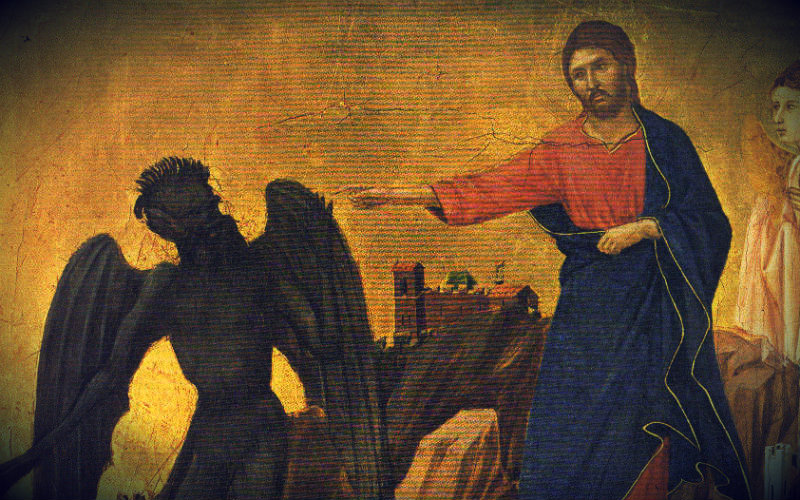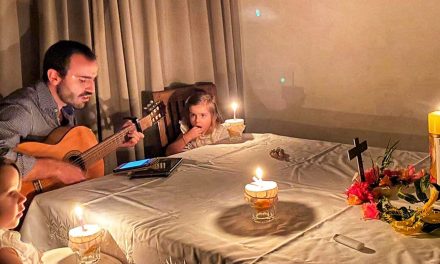MARFAM FAMILY WEEKLY E-NEWSLETTER 21 FEBRUARY 2024

If you gave up chocolates for Lent and gave in to the temptation to eat one is that a sin? If you resisted you must be a saint!
As we’ve just listened to Mark’s Sunday gospel on Jesus’ temptation I’ve been thinking again about the three temptations noted in the three gospels of Mark, Matthew and Luke, in slightly different forms. Mark’s gospel is short, but the others flesh them out more and present them in a context and almost by way of a parable. What interests me is the relevance those temptations have for us in our family lives today. A few points on temptation as such. Not all “temptations” are necessarily to do something bad or sinful. Sometimes it is to do, or not do, something good or to make a choice between two options, mostly one more desirable than the other. I may be tempted to stay home and read my book, or go out with a colleague for a meal which might cost me. Maybe the real criteria in temptation is to consider what is in the best interest of the common or greater good. In another sense, temptations can also be seen as testings.

Jesus’ temptations are set at the start of his public ministry so the context is the choices he needs to make. In the first case Satan asks him to turn stones into bread, as he is hungry after his long fast. His decision is whether he should use his miraculous powers, not just for bread but to impress, reach and influence his hearers. His quotation” man does not live by bread alone” also highlights the necessity to bring God into our lives and decision-making and turn away from materialism.
In the 2nd temptation Satan uses an offer of power and owning the kingdoms of this world. Jesus constantly had to consider whether to go the way of earthly power and leadership, right until the events of Palm Sunday. Earthly power and authority over others is an attraction, a constant temptation, for us to consider too with elections coming up. Do we seek political leadership with all kinds of benefits attached? Why do people really go into politics one could ask and this is the kind of issue we should discuss with our families too. There are good motives and selfish ones too.
In the third temptation Satan challenged Jesus to put God to the test, to see if God would save him if he jumped off the roof of the temple. Was that a test of trust and of the certainty of God’s love and concern for him and his welfare? In a family game, kids might call out, “Catch me when I jump!” trusting that will happen. What about a desperate young person contemplating suicide by jumping off a building, is trust in God far from their mind at that time or even features at all? How can we instill and build our trust in God’s love and goodness.

Before this event Jesus had just spent a long time in the desert fasting and praying and must have felt very hungry, but also very close to his Father. The examples of the temptations or testings portray his decision-making process. Yes, he did have complete trust and was totally dependent on his Father, but he had to go out and do the work, which required him to make choices. That is something that families in their sharing and discussing should consider. Where does trust begin and end and where do I have to take responsibility for my actions. And be willing to take the consequences.
But also in this month of life-giving love there is more to consider in our Lenten reflection on temptation with family members. Temptation is not a sin, giving in to a temptation is, provided there is freedom to choose. Rape is a sin but being forcibly raped is not sinful for the victim. Teen sex and substance abuse are temptations where there is much pressure. Then there is the point of avoidance of occasions to sin behind many acts that cannot be ignored.
Clearly temptation has many aspects and levels. Stealing and hijacking are sinful but the degree of culpability can vary. A starving person stealing a loaf of bread must be seen as less guilty than a kid stealing sweets at the supermarket. Corruption is giving in to temptation. In today’s world, around environmental issues the temptation exists to do nothing and blame the government, the mines, the rich or the poor for the littering, wasting, polluting and misuse of funds. Or maybe we’re too lazy and tempted not to switch off lights to save energy. The test of our commitment to love and truth requires us not to give into temptation to spend money wastefully and unwisely. Maybe it is a time to adopt the saying, “Live simply so that others may simply live.” Or this month, with the theme “Love gives families life” make being loving and lifegiving the criteria in dealing with temptation.


For a list of 40 Dos and Don’t Lenten Acts of Love and Sacrifice go to .https://marfam.org.za/2024/02/14/lent-and-the-family-2024/ TR Family weekly 21 February 2024
THOUGHT FOR THE DAY 21 FEBRUARY 2024.
February 21. Abigail, in typical teenage fashion said, “Remember the other day we talked about fasting. I don’t think I have ever seen anyone putting on sackcloth. It must feel horrible. But that is not the point is it? It is about repentance. I like the word metanoia. It is turning back from times when we have done wrong, abused our own rights and ignored rights of others. Metanoia then requires us to repent and fasting was a traditional way to do that. I read that St Francis really chastised his body, hardly eating anything. Do we still fast from eating and drinking or giving up things, or how can we repent?
Reflect, share, Scripture: Jonah proclaimed a fast, put on sackcloth, sit in ashes. The king issued a proclamation that every creature should not eat or drink so as to repent from their evil ways. Read Jonah 3:1-10 Jesus began to say, “this generation is an evil generation. It seeks a sign but no sign will be given to it except the sign of Jonah. Pope Francis: Social love is the key to authentic development., In order to make society more human, more worthy of the human person, love in social life – political, economic and cultural must be given renewed value and become the constant and highest norm for all activity. LS 231.We are called to promote a culture of mercy based on the rediscovery of encounter with others, a culture in which no one looks at another with indifference or turns away. MM20. Pray one of the Lenten prayers.: That we may be open to one another and the needs of the greater world of families. Choose appropriate action. LSAP goal 7. Community empowerment







Recent Comments